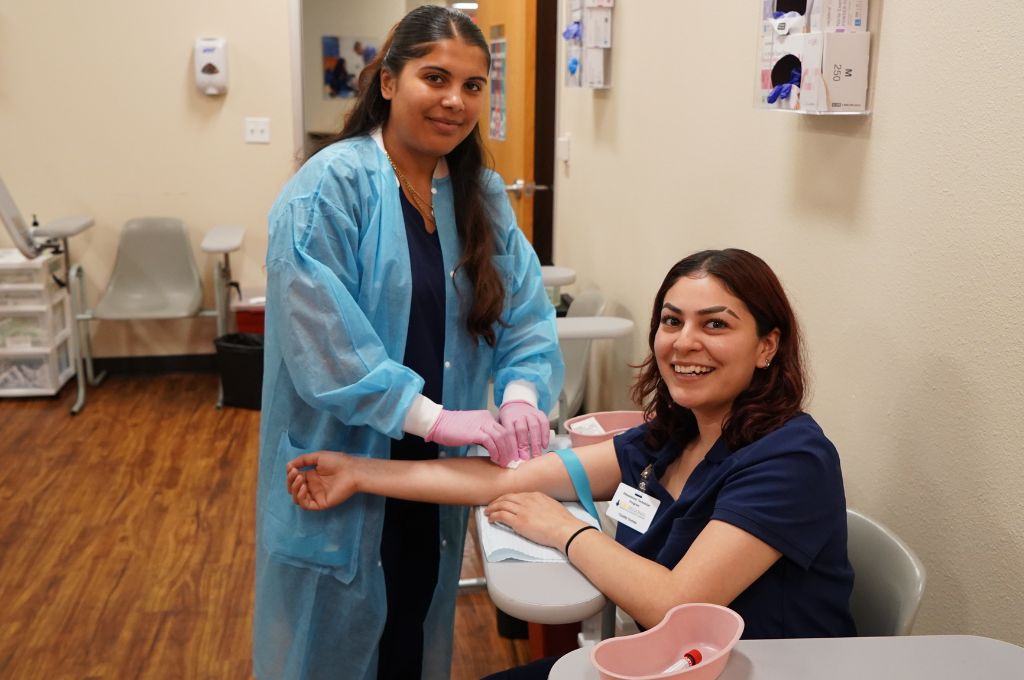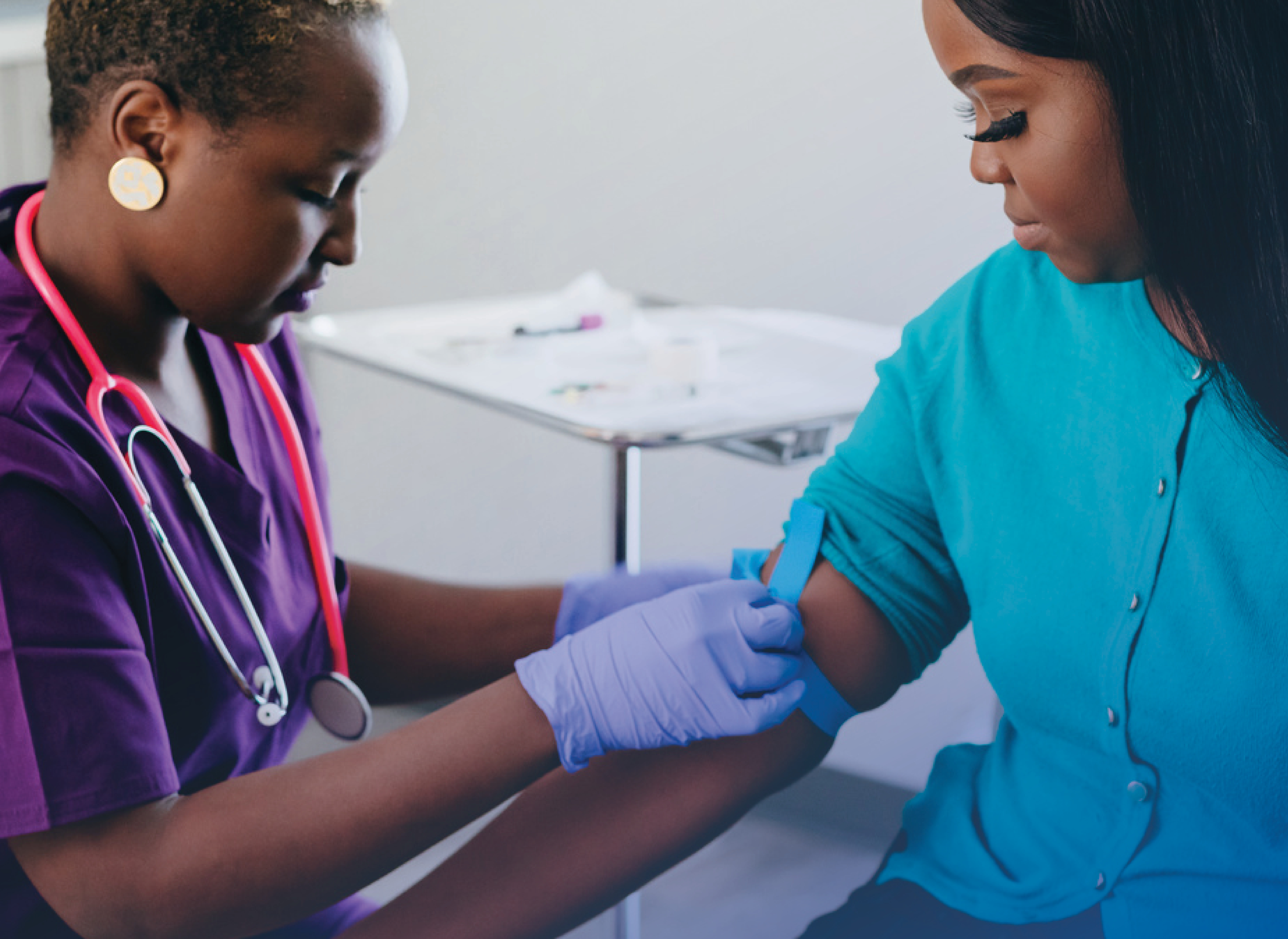Phlebotomy Classes Near Me: What You Should Know
Phlebotomy Classes Near Me: What You Should Know
Blog Article
The Path to Accreditation: Recognizing the Phlebotomy Training Course Journey and Its Significance
As you think about the path to qualification in phlebotomy, it's vital to understand the role you'll play in health care. Your training will cover important abilities, from blood collection strategies to patient interaction.

The Role of Phlebotomists in Medical Care
Phlebotomists play a necessary role in the medical care system, functioning as the vital link in between individuals and essential analysis testing. You'll do blood draws, making sure samples are gathered accurately and securely. Your knowledge aids in diagnosing clinical problems, keeping track of wellness, and directing therapy decisions.
In your day-to-day communications, you'll need to establish trust fund with clients, making them really feel comfy during what may be a difficult experience. You're liable for identifying and managing samples very carefully to stop contamination or errors, which might influence examination results.
Past this, you'll frequently function along with medical professionals and registered nurses, connecting critical information about patients' conditions. By mastering your abilities, you add meaningfully to individual treatment, making you a vital component of the clinical team.
Overview of Phlebotomy Training Programs
When discovering phlebotomy training programs, you'll locate different types made to fit various routines and discovering styles. Each program helps you create crucial abilities like blood collection and individual interaction. Comprehending these options is key to picking the appropriate path for your profession.
Sorts Of Educating Programs
A number of sorts of training programs are available for those aiming to end up being skillful in phlebotomy. You can pick from certificate programs, which usually last a few months and concentrate on necessary skills. There are additionally diploma programs that supply a more thorough education and learning, often lasting approximately a year. If you're trying to find a much deeper understanding, an associate level in a related area could be the appropriate fit. On the internet training courses offer adaptability for those balancing job or household dedications, enabling you to research at your own rate. Furthermore, some hospitals and facilities offer on-the-job training programs, giving useful experience while you find out. Whatever path you pick, each program aims to furnish you with the necessary skills for an effective phlebotomy career.

Key Skills Established
Grasping phlebotomy requires a collection of key skills that are developed with complete training programs. You'll find out technological abilities like correct capillary selection, needle insertion, and blood collection techniques. These hands-on techniques ensure you can carry out treatments securely and efficiently. Additionally, interaction abilities are essential; you'll need to engage with clients, discuss procedures, and put them comfortable. Understanding anatomy and physiology is critical, also, as it helps you locate blood vessels and comprehend the body's action to blood draws. Finally, you'll gain expertise of safety and security procedures and infection control, assuring you maintain a clean and sterile setting. Each of these skills is important for your success as a certified phlebotomist, making you a beneficial possession in any healthcare setup.
Key Parts of a Phlebotomy Course
In a phlebotomy program, you'll concentrate on vital subjects that lay the groundwork for your future job. You'll take part in hands-on training that enables you to use what you've discovered in real-world setups. Both the curriculum and functional experience are vital for your success as a phlebotomist.
Curriculum Review
While pursuing a phlebotomy training course, you'll come across a core educational program developed to furnish you with basic skills and knowledge. Phlebotomy school. This educational program typically includes composition and physiology, concentrating on the circulatory system and understanding blood elements. You'll additionally find out about different types of blood collection techniques, consisting of venipuncture and capillary slit methods
In addition, infection control and safety and security protocols are vital elements, guaranteeing you understand exactly how to keep a clean and sterile setting. You'll research patient communication, click here now stressing interaction and compassion, which are essential for reducing patient anxiety. Finally, ethical and lawful factors to consider will be addressed, preparing you for real-world responsibilities. This fundamental understanding will certainly enable you to excel as a phlebotomist and provide quality care in professional setups.
Hands-On Training Experience
Getting hands-on experience is an essential part of your phlebotomy training program. This sensible training enables you to apply what you've discovered in a real-world setup, improving your abilities and confidence. Phlebotomy Courses Near Me.
Furthermore, you'll obtain the chance to engage with patients, which is necessary for developing your communication abilities. This mix of technical efficiency and interpersonal abilities is critical for your success as a licensed phlebotomist. Inevitably, hands-on training is where theory satisfies technique, solidifying your understanding and preparedness for qualification.
Certification and Licensing Demands
Prior to you can begin your career in phlebotomy, it is important to comprehend the qualification and licensing needs that vary by state. Many states need phlebotomists to hold a qualification from a recognized organization, such as the National Phlebotomy Organization or the American Culture for Professional Pathology. These certifications usually include passing a test that examines your knowledge and skills in the field.
Along with qualification, some states have details licensing needs. You may need to complete a certain number of hours in clinical practice, submit evidence of training, or undertake a history check. It is essential to investigate your state's laws to make certain you fulfill all needed requirements.
Remaining notified regarding these demands not only helps you protect a position but also boosts your reliability as a professional. By fulfilling these requirements, you'll be well on your means to an effective occupation in phlebotomy.
Hands-On Training and Practical Experience
Hands-on training and functional experience are essential components of your phlebotomy education, as they permit you to use theoretical knowledge in real-world scenarios. Throughout your training, you'll take part in supervised venipuncture, find out proper techniques, and come to be aware of various blood collection tools. This straight involvement is critical for constructing your check my reference self-confidence and developing your abilities.
You'll function carefully with knowledgeable professionals that can guide you through the subtleties of individual interaction and example handling. Each method session not just strengthens your understanding but additionally prepares you for the hectic setting of health care settings.
Furthermore, many programs integrate medical turnings, enabling you to experience diverse settings, from healthcare facilities to outpatient centers. This exposure assists you adjust to various challenges and individual needs, ensuring you're well-prepared for your future function. Embrace these chances, as they're important to coming to be an experienced and compassionate phlebotomist.
Difficulties Faced During Training
While getting hands-on experience is crucial, it's important to recognize the difficulties that can develop throughout your phlebotomy training. In addition, understanding the abilities needed for blood draws takes method; you might battle with strategy originally.
Time monitoring can additionally be a difficulty, as harmonizing concept, sensible sessions, and individual dedications can really feel intimidating. You may deal with varying learning paces among your peers, leading to feelings of insecurity if you assume you're dropping behind. Ultimately, adjusting to the different characters of trainers can be challenging, as each might have a special training design.
Identifying these challenges at an early stage can prepare you for success and help you develop strength throughout your training trip.
Occupation Opportunities After Certification
As you acquire experience, you could even think about specializing official statement in locations like pediatric or senior citizen phlebotomy, catering to certain patient demands. Some phlebotomists choose to progress their jobs by becoming research laboratory technicians or going after more education in health care areas.
In addition, your certification can cause duties in training or supervising new phlebotomists, permitting you to share your expertise. With the health care sector constantly growing, your abilities will certainly constantly remain in demand, paving the method for a steady and satisfying job. Embrace the opportunities waiting on you!
Often Asked Concerns
What Is the Regular Period of a Phlebotomy Training Course?
Phlebotomy training courses usually last around 4 to 8 weeks. You'll take part in hands-on technique, class instruction, and online learning. Completing this training prepares you for certification and a gratifying occupation in health care.
Are Online Phlebotomy Courses Available?
Yes, on the internet phlebotomy training courses are readily available. They use adaptability and ease, permitting you to research at your very own speed. Just confirm the program is certified to satisfy accreditation demands and acquire important skills for your profession.
How Much Does Phlebotomy Training Generally Cost?
Phlebotomy training generally costs in between $700 and $2,500, relying on the program and place. You ought to consider factors like course size, consisted of materials, and hands-on experience when selecting the appropriate training for you.
What Are Common Requirements for Phlebotomy Training?
Usual requirements for phlebotomy training commonly consist of a secondary school diploma or GED, booster shots, and a background check. Some programs might also call for basic medical care knowledge or qualifications, ensuring you're prepared for hands-on training.
Can I Work While Completing My Phlebotomy Training?
Yes, you can work while finishing your phlebotomy training. Many trainees balance tasks with their researches, but ensure to manage your time successfully to ensure you meet both job and training dedications successfully.
Report this page